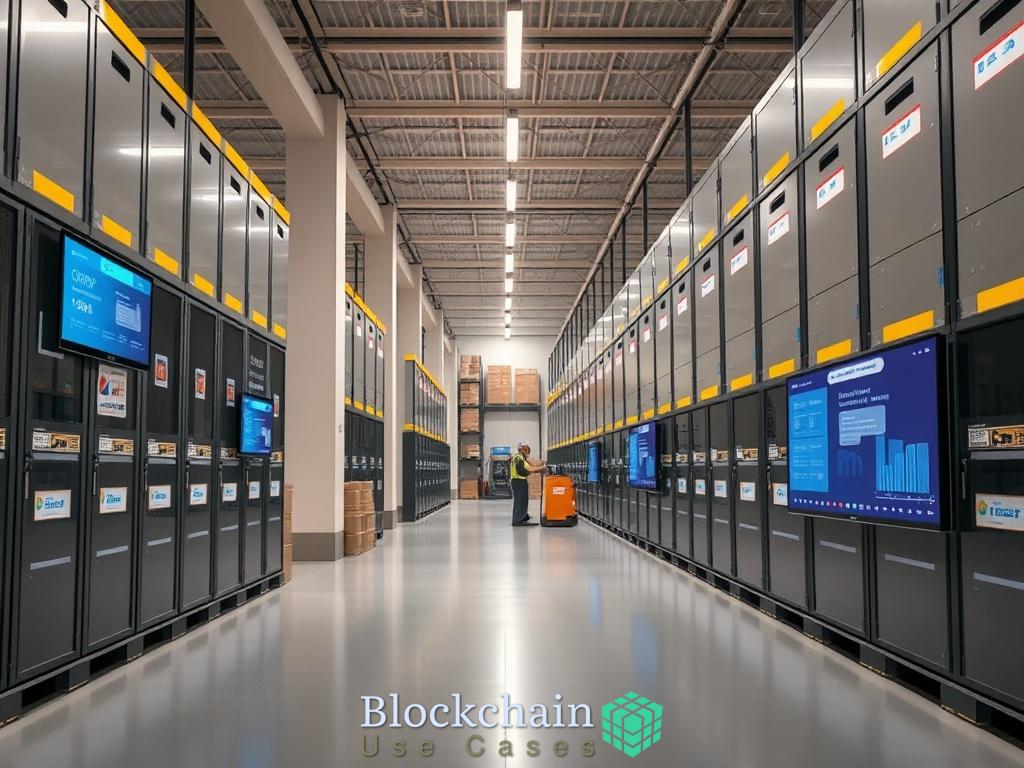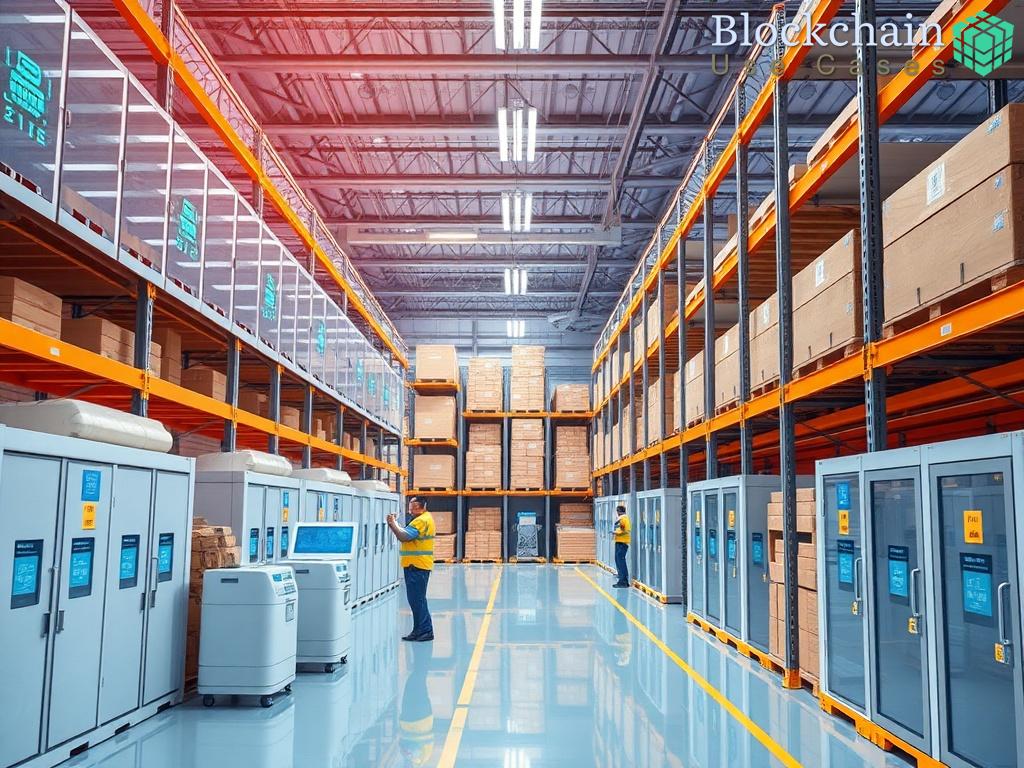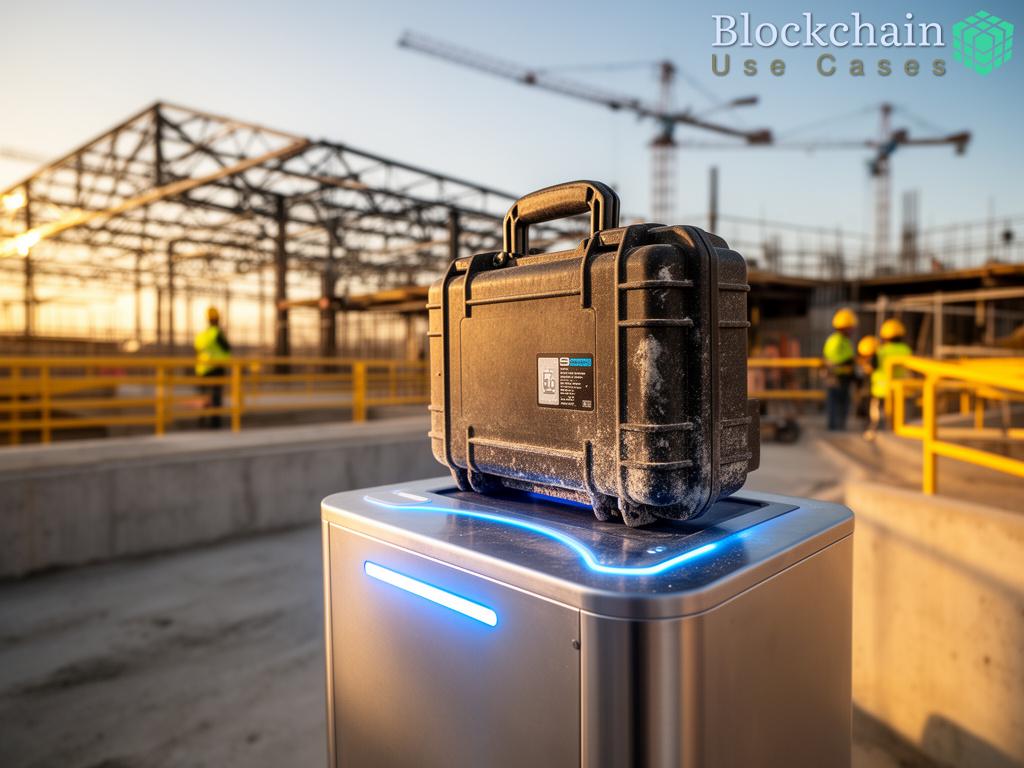Introduction to Tokenized Warehouse Models

The landscape of supply chain management is undergoing a significant transformation with the advent of tokenized warehouse space. This innovative model redefines traditional storage paradigms, enabling businesses to optimize their inventory management while enhancing flexibility and efficiency. By integrating blockchain technology with logistics, tokenized warehouse models present a compelling solution for modern-day storage challenges.
At its core, tokenization refers to the creation of digital tokens that represent real-world assets—in this case, physical warehouse space. Through the use of smart contracts on blockchain platforms, businesses can lease or access warehouse space on an as-needed basis, eliminating the burdens of long-term commitments. This dynamic approach not only reduces overhead costs but also allows for real-time adjustments to inventory levels based on demand.
Embracing tokenized warehouse solutions offers a myriad of advantages for companies looking to streamline their supply chains. Below is a list of key benefits that highlight the potential impact of this model:
- Increased Flexibility: Companies can easily scale storage needs up or down based on seasonal demands or market fluctuations.
- Cost Efficiency: Reduced overhead costs and minimized capital expenditure associated with traditional long-term leases.
- Enhanced Transparency: Blockchain technology ensures that all transactions are secure, traceable, and immutable, fostering trust among stakeholders.
- Faster Transactions: The automated nature of smart contracts allows for quicker agreements and reduced administrative burdens.
- Improved Utilization: Tokenized models can optimize space utilization, ensuring that available warehouse areas are used effectively.
As businesses continue to seek innovative solutions to enhance their operational capabilities, tokenized warehouse models stand at the forefront of the supply chain revolution. By leveraging technology to create more responsive, efficient, and cost-effective storage solutions, companies can position themselves for success in an increasingly competitive marketplace.
Benefits of On-Demand Storage in Supply Chains
The emergence of tokenized warehouse space is not only a game-changer for logistics but also redefines how businesses approach on-demand storage. By allowing companies to scale their storage needs in real-time, on-demand storage is paving the way for a more agile supply chain. This flexibility is paramount in a business environment characterized by rapid change and unpredictability.
One of the standout features of on-demand storage is its ability to respond promptly to fluctuating market demands. Businesses can adjust their storage requirements based on seasonal trends, unexpected spikes in demand, or shifts in consumer behavior. This capability minimizes the risk of overstocking or stockouts, ensuring that companies remain competitive and responsive.
In an era where every dollar counts, on-demand storage presents a financially savvy alternative to traditional warehousing. By eliminating the fixed costs associated with long-term leases, companies can invest their resources into growth and innovation. The following list outlines key financial benefits:
- Reduced Capital Expenditure: Businesses only pay for the storage they utilize, which can lead to significant savings.
- Lower Operational Costs: The automated nature of tokenized models reduces the need for manual processes, decreasing labor costs.
- Minimal Risk: Companies can pivot quickly without the burden of enduring contracts, which is especially crucial during economic uncertainty.
With the integration of blockchain technology, on-demand storage not only streamlines operations but also enhances transparency within the supply chain. Each transaction is recorded on a secure, immutable ledger, providing stakeholders with real-time insights into inventory levels and movements. This transparency fosters trust and accountability, which are essential for successful partnerships in the supply chain ecosystem.
Technological Innovations Driving Tokenization
The advent of tokenized warehouse space is largely attributed to groundbreaking technological innovations that facilitate this paradigm shift in supply chain management. As businesses strive to adapt to fast-evolving market demands, technology becomes the backbone of these new storage models. The integration of various advanced technologies is not just enhancing operational efficiency but is also paving the way for a more transparent, flexible, and cost-effective storage solution.
Blockchain Technology: The Foundation of Tokenization
At the heart of tokenized warehouse space is blockchain technology, which serves as a secure and decentralized ledger for tracking transactions. By employing blockchain, businesses can create a digital representation of their warehouse space as tokens. Each token corresponds to a specific unit of storage, allowing for seamless trading and leasing without the need for intermediaries. This technological advancement not only ensures transparency in transactions but also reinforces trust among stakeholders, as each movement of inventory is verifiable and immutable.
Smart Contracts: Automating Agreements
Complementing blockchain are smart contracts, self-executing agreements coded onto the blockchain. These contracts automate transactions, significantly reducing the administrative overhead typically associated with traditional leasing agreements. For instance, when a business requires additional storage space, a smart contract can automatically execute the terms of the lease based on predefined criteria, such as duration and pricing. This automation facilitates quicker access to storage solutions, thereby enhancing operational agility and reducing the time spent on manual negotiations.
| Technology | Functionality | Impact |
|---|---|---|
| Blockchain | Secure and transparent transaction tracking | Builds trust and accountability |
| Smart Contracts | Automates lease agreements and transactions | Reduces administrative burdens and enhances speed |
| Internet of Things (IoT) | Real-time inventory monitoring | Improves inventory management and reduces losses |
Internet of Things (IoT): Enhancing Operational Insight
The integration of IoT devices within tokenized warehouse models is revolutionizing how businesses manage their inventory. Sensors and smart devices provide real-time data on inventory levels, environmental conditions, and location tracking, which are crucial for informed decision-making. This data not only aids in optimizing space utilization but also minimizes the risk of overstocking or spoilage. The synergy of IoT with tokenization empowers companies to adopt a proactive approach to inventory management—responding to changes swiftly and efficiently in an on-demand landscape.
In conclusion, the intersection of these technological advancements is redefining warehousing strategies, enabling businesses to leverage tokenized space as a dynamic asset in their supply chain. As companies embrace these innovations, they are better positioned to navigate the complexities of modern logistics, ensuring that they remain competitive in an ever-changing marketplace.
Challenges and Solutions in Tokenized Storage
The rise of tokenized warehouse space presents an exciting opportunity for supply chain optimization; however, it is not without its challenges. As businesses venture into this innovative model, they must address various hurdles that can impede the seamless adoption of tokenized storage solutions. Identifying these challenges and implementing effective strategies to overcome them is essential for maximizing the benefits that tokenization has to offer.
One of the foremost challenges in tokenized storage is ensuring the security and compliance of transactions within a blockchain environment. As businesses handle sensitive data and critical inventory information, they must navigate complex regulatory landscapes that vary across regions and industries. Failure to comply with these regulations can lead to hefty fines and reputational damage. To mitigate these risks, organizations should invest in robust security frameworks, including advanced encryption techniques and regular compliance audits. Collaboration with experienced legal advisors who specialize in blockchain technology can also provide invaluable insights into maintaining compliance.
Another significant obstacle lies in the integration of tokenized systems with existing warehouse management technologies. Many companies rely on legacy systems that may not support the complexities of blockchain and IoT integration. This disconnect can result in inefficiencies, data silos, and a lack of real-time visibility, ultimately undermining the potential benefits of tokenized storage. To address this challenge, businesses should prioritize a phased integration strategy that allows for gradual implementation of new technologies. By conducting thorough assessments of current systems and identifying compatible solutions, companies can ensure a smoother transition to tokenized models.
Moreover, fostering a culture of technological adaptability among employees is critical. Offering training sessions and workshops will empower staff to embrace new tools and processes, enhancing overall operational efficiency.
| Challenge | Potential Solution |
|---|---|
| Security and Compliance | Implement robust security frameworks and collaborate with legal advisors. |
| Technological Integration | Adopt a phased integration strategy and provide employee training. |
By proactively addressing these challenges, businesses can unlock the full potential of tokenized warehouse space, driving innovation and resilience in their supply chains. The journey toward on-demand storage solutions requires thoughtful consideration of the hurdles that lie ahead, but with strategic planning and execution, companies can position themselves as leaders in this evolving landscape.
Future Trends in Warehouse Tokenization
The evolution of tokenized warehouse space is poised to redefine the logistics landscape, ushering in a new era of on-demand storage solutions. As companies increasingly embrace this innovative model, several future trends are emerging that promise to enhance operational efficiency, improve scalability, and elevate customer satisfaction. The convergence of technology and logistics is expected to foster a more agile supply chain ecosystem, driven by data-driven insights and enhanced connectivity.
One of the most significant trends shaping the future of warehouse tokenization is the seamless integration of advanced technologies such as artificial intelligence (AI) and machine learning (ML). These technologies will enable businesses to analyze vast amounts of data generated from tokenized operations, allowing for predictive analytics that can inform inventory decisions. By leveraging AI, companies can anticipate demand fluctuations and optimize their storage strategies accordingly, ensuring that they maintain the right levels of inventory without incurring unnecessary costs. Moreover, the ability to analyze historical data patterns will enhance the precision of supply chain forecasting, further driving efficiency.
The future of tokenized warehouse models also points toward enhanced customization of storage solutions tailored to specific business needs. As businesses increasingly seek personalized approaches, tokenized models will evolve to offer adaptable space configurations and flexible leasing terms. This shift will empower companies to choose storage solutions that align closely with their operational requirements, fostering a more responsive and customer-centric supply chain. Furthermore, the ability to customize storage options will facilitate the integration of value-added services such as temperature-controlled environments for perishable goods or specialized facilities for high-value items, further broadening the appeal of tokenized warehousing.
Looking ahead, the concept of decentralized storage networks powered by blockchain technology will become more prevalent. This model will allow businesses to engage with multiple warehouse providers, creating a dynamic ecosystem that maximizes storage options and geographical reach. By leveraging tokenization, companies can access a global network of warehouses on an as-needed basis, minimizing logistics costs while enhancing service delivery. This decentralized approach will enable stakeholders to participate in a collaborative marketplace, where real-time data sharing and transparency are paramount, ultimately leading to improved supply chain resilience and responsiveness.





